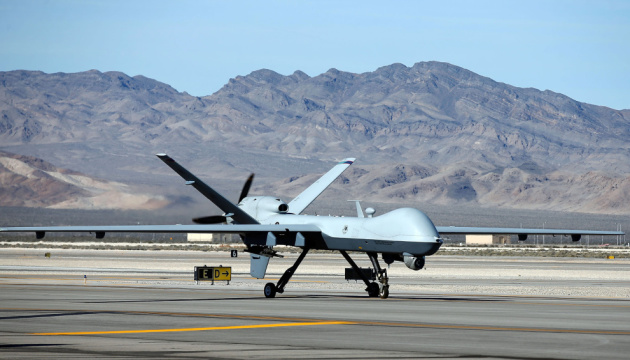
U.S. has 100 Reaper drones in stock that could help Ukraine fight off Russian bombers - expert
The United States could provide Ukraine with MQ-9 Reaper drones, which do not require as much training as needed for F-16 pilots, and AMRAAM missiles for them to "push back" Russian bombers that launch deadly glide bombs.
The opinion was expressed by Dan Rice, President of the American University Kyiv and former special adviser to the then-Commander-in-Chief of the Armed Forces of Ukraine, Valery Zaluzhnyi, who spoke with the media in Kyiv, an Ukrinform correspondent reports.
He explained that currently the biggest threat to Ukraine’s Armed Forces poses Russian strategic bombers and fighter jets dropping glide bombs on forward positions of the Ukrainian military. The Armed Forces need to push these bombers 50 km away but this raises two problems that need to be addressed: a sufficient number of missiles and weapons platforms to launch them – planes or drones.
"So what we need is we need missiles that are longer air-to-air missiles and so we have like an AMRAAM which has a very, very long range that can be launched off either an F-16 or it can be launched off by an MQ9 Reaper. We've got a hundred MQ9 Reapers sitting in boxes, doing nothing. I've been advocating for that, I've written several things, I talked to Congress about it, I talked to the Senate Armed Services Committee – that's one of those things that could augment and support the F -16s," Rice said.
The expert emphasized that Ukraine can quickly obtain MQ9 drones and "push back" bombers, while the number of F-16 fighters is limited, and the Armed Forces need much time to have their pilots trained, and the latter are also in short supply.
As Ukrinform reported earlier, President of Ukraine, Volodymyr Zelensky, previously said Russia launches about 100 aerial guided bombs every day, and no anti-aircraft system can cope with such a mass. Comprehensive solutions are required to this end.
Photo: Isaac Brekken/Getty Images
